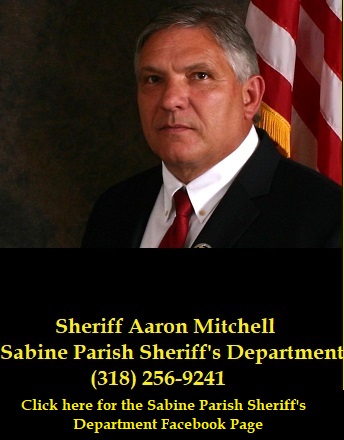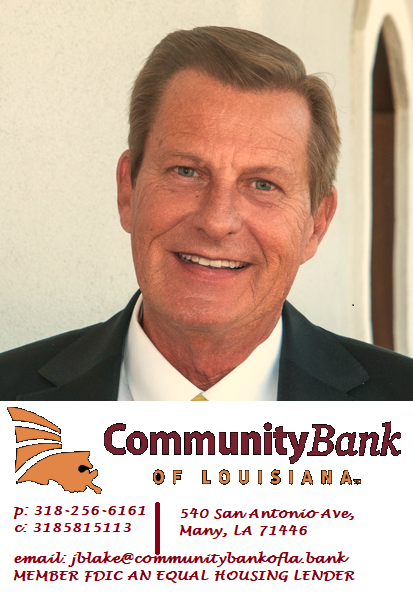EDWIN W. EDWARDS
August 7, 1927 – July 12, 2021
A Tribute
By Laurie Gentry

After learning of Edwin Edwards’ death Monday morning, memories of our time together flooded over me. I’ve smiled a lot in the last few days recalling funny things Gov. Edwards said and did. I’ve cried, too. Especially touching are the memories of EWE going out of his way to do so much for my husband Robert, including speaking at his Political Hall of Fame induction just before the pandemic was declared last year. And there were more tears reading Trina’s remarks of her husband’s last moments. She, Eli and other members of Edwin’s family continue to be in our prayers.
It was a joyful time a few years ago when I wrote the following content for Gov. Edwards’ 90th Birthday Party event magazine. It may read a little puffy to hard-nosed political historians but how else would I have written it for such an effort? It does cover the highlights of Gov. Edwards’ career and life, albeit briefly. Of that, I’m satisfied.
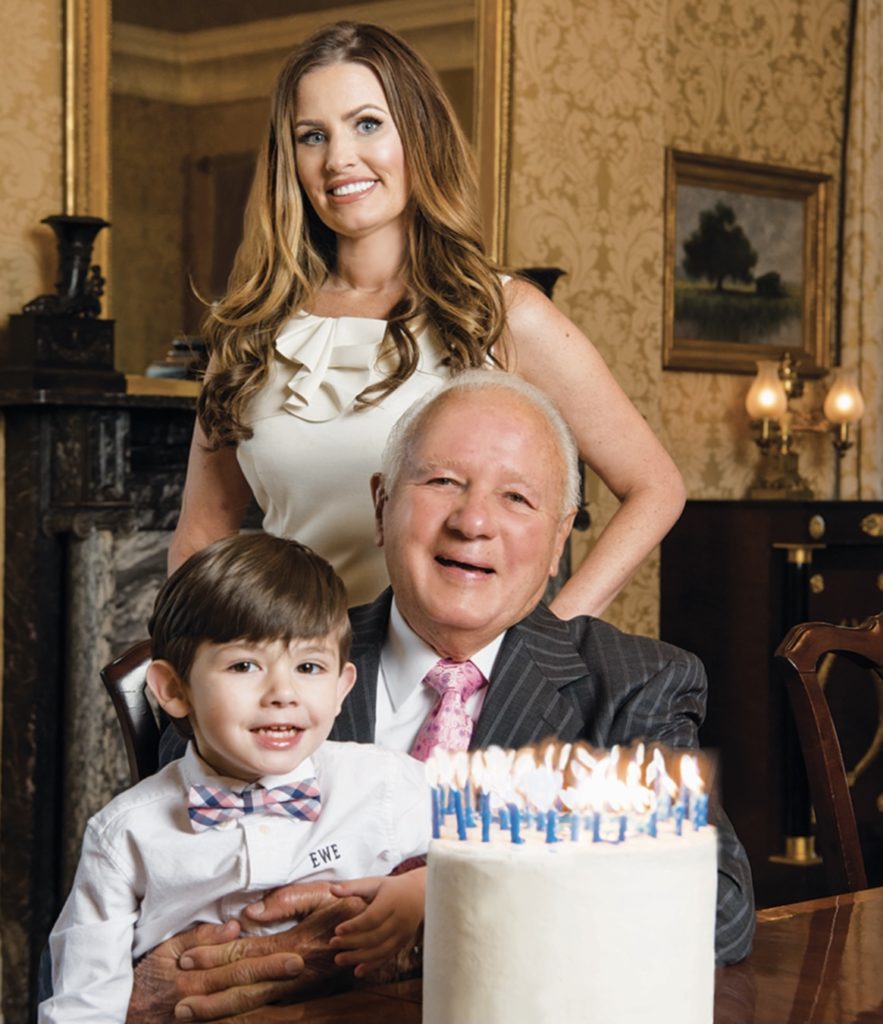
It was my pleasure to meet former Gov. Edwards in 2006 when he was at Oakdale. Robert and I had a long visit with him there before we were married. He was amazing. His optimism and gracious warmth touched my heart. He was, in overused phrase, simply “the best.”
It was a great honor to have the opportunity to get to know him a bit, to study his life, to see firsthand his loving relationship with Trina and Eli and, along with Robert, to design a celebration to honor his most recent milestone birthday. And what a night we had in Baton Rouge! If you have not yet listened to his speech of that evening, you must. It is one of his best – heartfelt, real, triumphant and absolutely 24K Edwin W. Edwards. Find it on YouTube.
Reading back over the words below, written in 2017, the audacity of attempting to capture a colorful life of 90 years in only nine short articles makes me laugh. It was a wonderful challenge.
Then as now, I marvel at Edwin Edwards’ indomitable spirit. His bayou charm, keen wit and indelible legacy shine through in everything he did. Along with so many others who each treasure their own personal memories of EWE, I am grateful for the time we spent together. His successful, populist leadership will rightfully go down as among Louisiana’s finest.
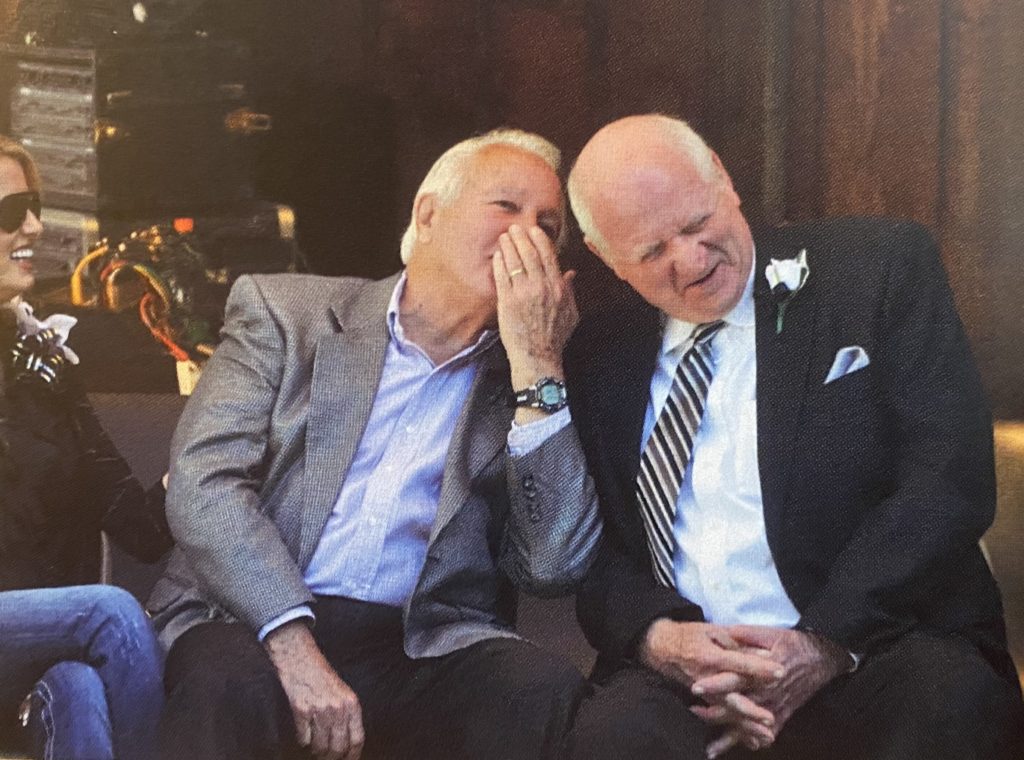
This is my tribute to a life fully lived. Rest in peace, Edwin W. Edwards.
Raw Ambition Born on a Dirt Farm
the beginning
EWE 1927 – 1940
“My favorite childhood memories were the evening meals when every evening the entire family sat at a wood table and shared a simple but delicious meal prepared by my mother over a wood stove – it was a family ritual.” – Gov. Edwin W. Edwards
“I am going to be the Governor.” Ambition is birthed in all forms, and sometimes it’s bathed in dust. Six-year-old Edwin Washington Edwards knew in his heart what he wanted.
Being born on a dirt farm doesn’t matter if you have the right upbringing, the right mindset, the courage and the confidence to make things happen. While it’s true that all massive success is part skill and part luck, it can never hurt to have a good measure of singular purpose. It seems Edwin W. Edwards excelled in that.
Clarence “Boboy” Edwards and his wife, the former Agnès Brouillette, welcomed another baby boy to their family on August 7, 1927 when they lived on a dirt farm near Marksville, LA in Avoyelles Parish. Little Edwin Washington was also welcomed by his older sister Audrey and brother Allan. Though he was born a middle child just before brothers Marion and Nolan, Edwin enjoyed leading and naturally assumed the role of sibling-in-charge among the younger set.
With only six years under his belt, he announced to the Edwards clan he would one day be Governor of Louisiana. No doubt there were eyerolls from his counterparts, if not open derision, and nods of agreement from adults too noble to crush a kid’s dream. Nobody takes a six-year-old child seriously, especially with such a bold declaration.
Edwards’ spunk at that tender age says a lot. It was four years into the Great Depression, and folks didn’t know what to expect. Most rural people were working their tails off to feed their families; a feeling of anxiety and fear underlined almost all of life’s happenings. Huge fortunes and small nest eggs were being lost daily across the U.S. to hungry black holes of economic uncertainty.
To even dream big in that era was to be admired. Of course, lack of life experience is quick to provide unwarranted courage, but sometimes a person simply knows what he wants. And Edwin wanted to be governor.
Whatever grandiose stature the future might hold, Edwards was expected to do his daily farm chores from childhood onward. If he thought about sitting behind the Governor’s desk in Baton Rouge, it was through a steamy kitchen where his mother canned fruits and vegetables in hot jars to be sealed for winter use, or as he helped bring wood to build a fire in the yard to butcher hogs for meat to fill the family smokehouse.
Edwin got up before daylight to help his father milk cows, then he had to drive the animals to a pasture two miles away before hurrying back home to catch the school bus. After school, it was the same four-mile round-trip to herd the cows back home. Summertime brought additional chores, which included caring for their other livestock, chickens and such.
When the cotton came on and was ready to pick, Edwards hit the hot, endless rows to pull as many pounds as possible. Fall added cool weather activities like syrup-making and meat butchering.
In 1936 at age nine, Edwin got his first job bringing water to workers along the Red River levee for the grand sum of 15 cents an hour. His hourly wage could purchase two loaves of bread, three cans of pork and beans, or four pounds of bananas. Not bad for a kid in Depression-era Louisiana.
A few years later, electricity finally arrived to the rural South. Edwards had studied up on it and not only wired his own home for electricity, but also many neighbors’ houses.
The light had come on years before in 13-year-old Edwin. He had long since learned that hard work and education were the golden keys to life beyond the farm.
Answering the call… of God, Uncle Sam and Academia
a boy becomes a man
EWE 1941-1949
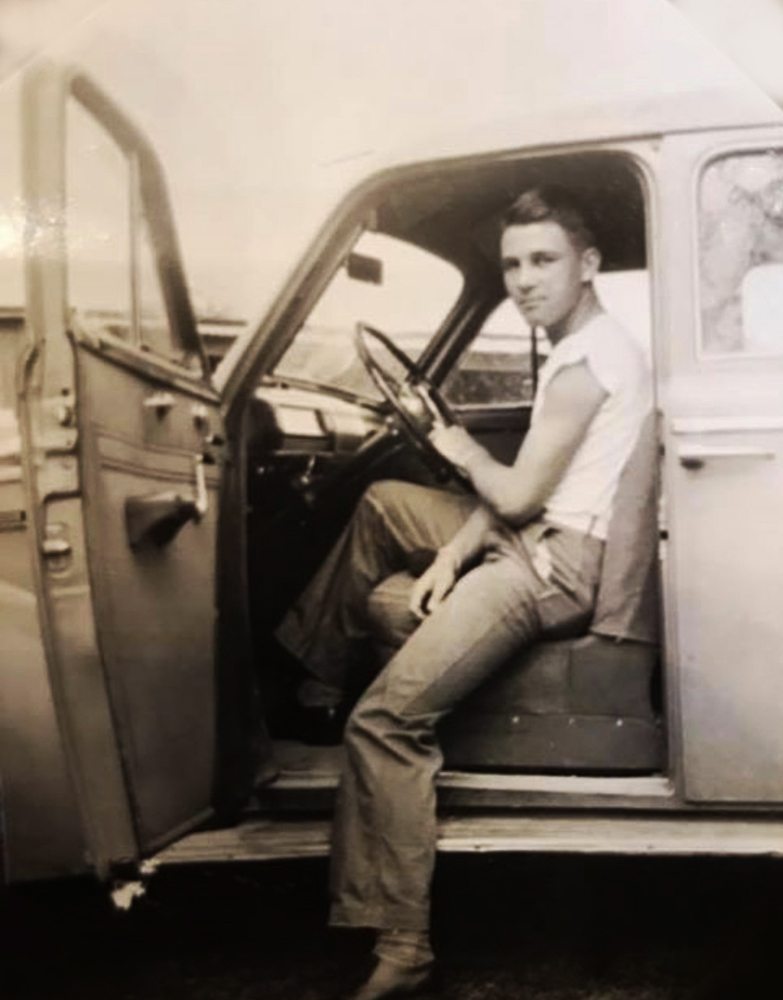
At age 14, Edwin Edwards followed his Grandmother Nora’s lead and became active in Marksville’s Church of the Nazarene. He soon accepted Christ, read the Bible through and when church leaders noticed Edwards’ obvious charisma, they recruited him to be a Nazarene Youth Minister in the church.
This role enabled Edwards to learn many helpful life skills, including how to speak effectively in front of an audience, how to use humor to underline a point and how to connect with people emotionally. It’s one thing to deliver an address, but it’s quite another to deliver it in a way that feels like friendly, intimate conversation. Edwards became an expert in the latter.
He was well-liked in school, a good student and musical, playing slide trombone in the Marksville High School Band. Sharp wit became an Edwards hallmark.
It was in his early teens he noticed a young lady he would eventually marry and with whom he would have a family, Elaine Schwartzenberg. The two spent time together, but when Pearl Harbor was attacked that December 7, life began to change for everyone. Suddenly, the nation and its young men were thinking of war. Though life marched on, its conveniences – and by default, its pleasures – were rationed.
At age 16, Edwin was elected president of his class at Marksville High and he got to travel to Boys State, an annual educational opportunity held in Baton Rouge at the Capitol. Mock elections were a part of the learning experience, and Edwards tried his hand at campaigning. He ran for a senate seat and won.
In those days, Eleventh Grade was one’s senior year, so following high school graduation at only a month past 17, Edwin began his first semester at Louisiana State University in Baton Rouge.
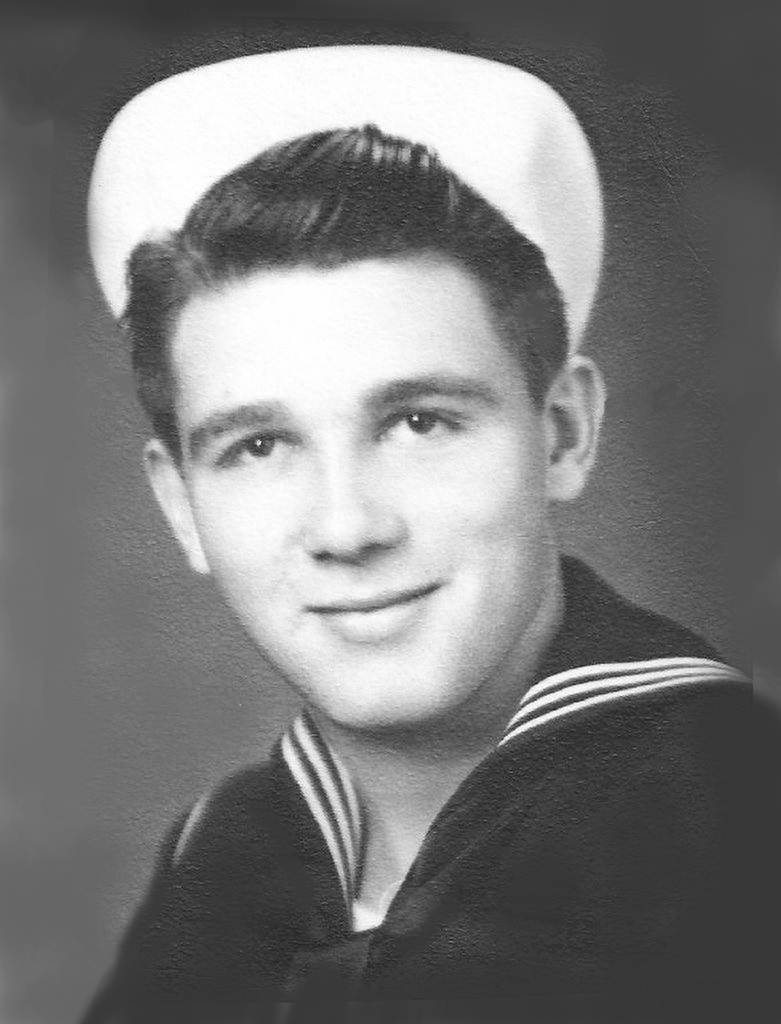
The war raged on and patriotism continued to wax, perhaps especially so in aspirational young men who were eager to assume real roles of leadership and service in their home communities as well as abroad. At the end of the spring semester at LSU, Edwards answered the Navy’s call to “Fight, Let’s Go!” He left for training in Crossett, AR, then was transferred to a Navy Flight Training Academy in Livermore, CA.
Two atomic bombs ended World War II and Edwards’ Navy career. He was discharged from service at War’s end and left the Navy academy in California for LSU in south Louisiana.
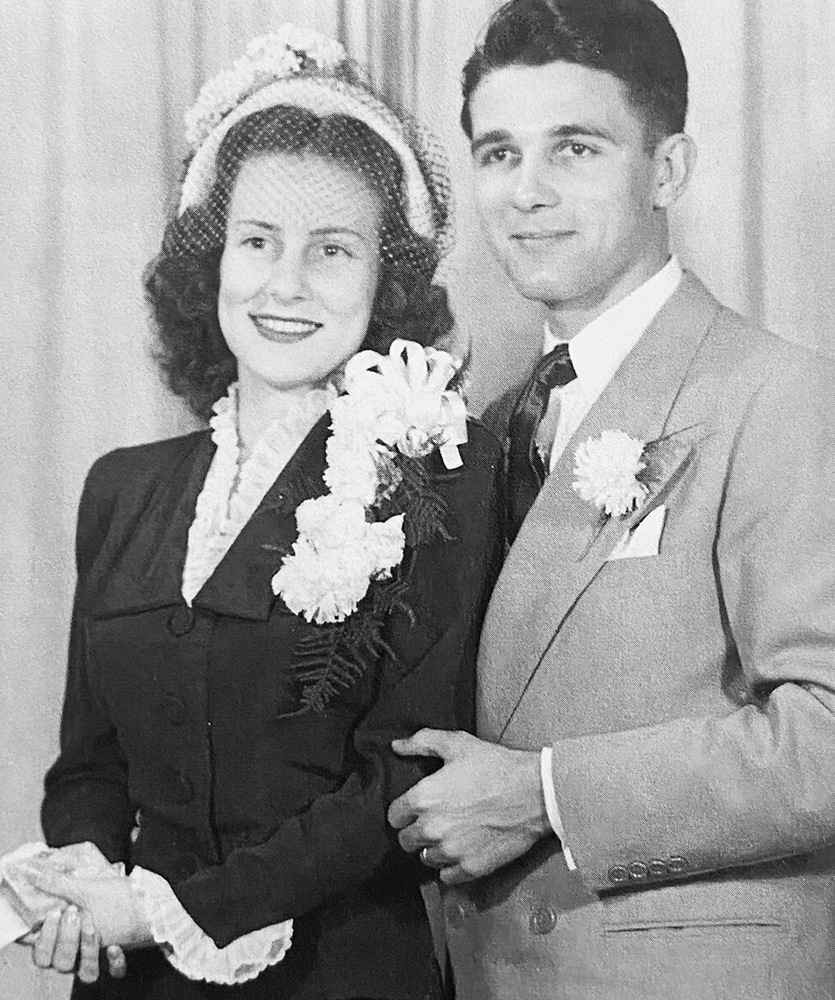
Now an 18-year-old Veteran, Edwards finished up his undergraduate work quickly and entered Louisiana State University Law School. By February 16, 1949 at the ripe old age of 21, Edwin W. Edwards was an attorney.
Prospects looked good for business in Crowley, LA, where Edwin’s older sister, Audrey, lived. The little rice town was ready for a Catholic-born, Protestant-saved, French-speaking, hard-working attorney. Enter one Edwin Washington Edwards, Esquire.
Throughout his Navy service and education, Edwards had continued to court Elaine and soon after he finished law school they were married.
To be married in the Catholic Church, spiritual matters were to be attended to before any physical ones might be entertained. And Elaine was Catholic. So, Edwin returned to the Catholicism of his childhood before their wedding day on April 3, 1949.
With an upstairs office over Gremillion’s Drug Store, a beautifully carved, painted sign from his brother Allan, and with equal parts hard work and sharp wit, Edwin Edwards went into business. Now, all he needed was to find some clients.
Into the Arena
off and running
EWE 1949 – 1965
Explorers came to the swamps of South Louisiana in 1949, but they certainly weren’t searching the murky lowlands for Spanish moss and Cypress knees. They were hoping to plumb the depths of what lay underneath – oil and natural gas. The only problem was many of the landowners were French-speaking Cajuns. And it’s hard to reach an agreement when you don’t speak the language. Landowners were in dire need of a French-speaking attorney to negotiate their land deals with the oil and gas people. Young Crowley Attorney Edwin W. Edwards was happy to help.
Every lawyer hopes for a “breakthrough” lawsuit early in his or her career. Edwin’s came in 1951 when the parents of young Patrick Werner contacted him after their 10-year-old child was struck and killed on his bicycle by a tractor-trailer rig hauling rice.
Edwin and Elaine’s first child, Anna, was born March 12, 1950, and perhaps coming home to that sweet little face every evening after work inspired Edwards to find a deeper legal passion on behalf of the Werners. It was rewarded well. Another daughter, Victoria, was born on March 11, 1952.
Edwards’ first political victory came just two short years later when he was elected to the Crowley City Council in 1954. He worked hard to enact positive progress on many fronts and was successful in several. It was also a banner year at home – the family was excited to welcome a baby boy, Stephen, on July 2, 1954.
Elaine gave birth to the Edwards’ second son, David, on Sept. 12, 1959, completing the Edwards family of that era.
It was a busy time personally and professionally. The same year, Edwards was elected President of the annual International Rice Festival, Crowley and the entire region’s biggest claim to fame.
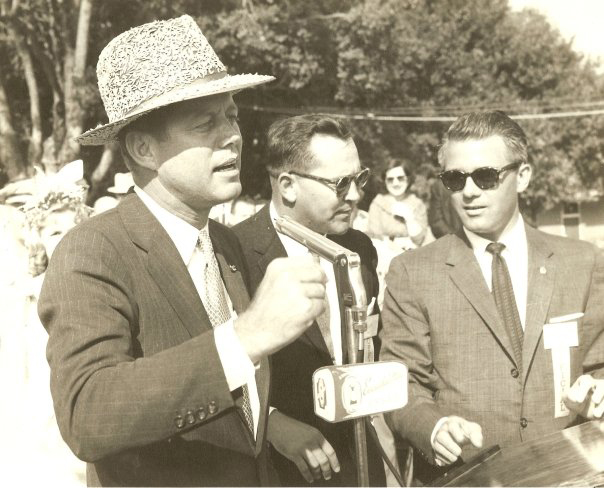
The political stars must have aligned over Crowley that year. Because of an acquaintance with Judge Edmund Reggie and Attorney Camille Gravel, none others than John F. Kennedy and his glamorous wife, Jacqueline, attended the Rice Festival when Edwin Edwards was serving as the organization’s president.
For a political powerhouse such as JFK to visit modest, rice-growing Crowley surely bolstered Edwards’ ambition and desire for something more. He soon set his sights on the Louisiana State Senate, a logical step toward the Governor’s Mansion.
In 1961, a Democratic ticket was organized in Acadia Parish in which the serving state senator, Bill Cleveland, would run for Governor, opening his seat for Edwin Edwards to run. For a couple of years, things rolled along smoothly until John McKeithen out-campaigned Cleveland. Plans started sliding southward for Cleveland by 1963, and he suddenly announced he would not seek the office of Governor after all. He would run for his old Senate seat again.
Edwin dug in, formed a new ticket and persevered. Cleveland underestimated Edwards’ political know-how, regional standing and loyal supporters. Ten years after his initial foray into politics, Edwin W. Edwards was elected to the Louisiana State Senate in 1964. The next year, Edwin, Elaine and the family left Baton Rouge for Washington, D.C. when he was elected to the U. S. House of Representatives in a special election after the tragic death of 7th District Congressman T. Ashton Thompson.
Less than two years before, Edwards was a City Councilman in a relatively small town in a small, Southern state. Now, he was seated in the nation’s capitol legislating with America’s greatest political minds. So, he did what he’s always done. He leaned into the learning curve and accelerated.
Grabbing the Brass Ring
from many, one
EWE 1965 – 1972
“I have known presidents LBJ, JFK, Richard Nixon, both Bushes, Clinton and Reagan. I respected each in a different way but had the best and most effective relationship with LBJ because I was a congressman and had a personal and political relationship with him.” – Gov. Edwin W. Edwards
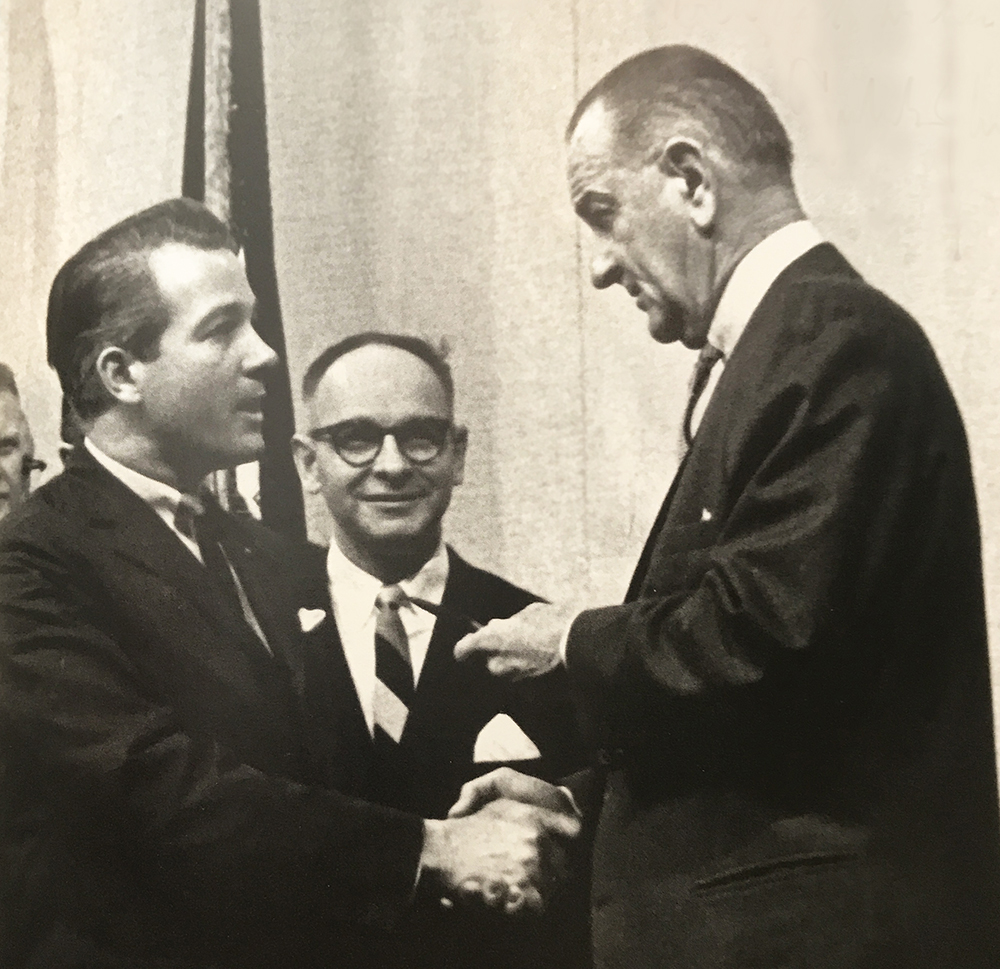
When newly elected U. S. Congressman Edwin Edwards, from the 7th District of Louisiana, arrived to Washington, D.C., he found the wheels of legislation turn very slowly.
During his three and a half years there, he stood up to Ag Secretary Orville Freeman’s threat to end the acreage allotments of rice farmers, which would have destroyed their profits. With his characteristic candor and courage, Edwards reminded Pres. Lyndon B. Johnson that the entire rice industry and all its dependents had supported them both and now deserved to be supported in return by D.C. Pres. Johnson agreed, and leaving the system as it was turned out to be one of then-Rep. Edwards’ most important victories for his constituents. In ‘70 he was counted among only a handful of Southern Congressmen who voted to extend the Voting Rights Act of 1965.
In mid-December of the same year, Edwin W. Edwards announced to the Baton Rouge Press Club he was running for Governor of Louisiana. He could not have known how crowded the field would be. Everybody, his brother, and his brother’s dog decided to run for Governor that election season. From Louisiana’s singing savior Jimmie Davis to wild West Monroe Congressman Shady Wall, each Governor-wannabe attempted to carve out a piece of the campaign pie. By virtue of seemingly endless candidate choice, each man cut for himself a very small slice of the voting public. Edwards kept his eye on the entirety and consistently campaigned to win others’ carve-outs of support when their races stumbled.
In the end, it came down to Edwin Edwards, J. Bennett Johnston and Gillis Long. Edwards won the first primary with 23.8 per cent of the vote. In the weeks before the second primary, Edwards pushed harder than ever, sharing the need for a new state constitution, reminding young first-time voters of their patriotic duty and ability to effect change, pitching for an end to corruption, and pushing to bolster Louisiana industries.
Edwards won the second primary beating out Johnston with a razor-thin margin. Of the 1.16 million votes cast, the winning difference totaled fewer than 4, 500 votes. Finally, it was time for the winning Democrat to focus solely on his Republican competition, Metairie Attorney Dave Treen.
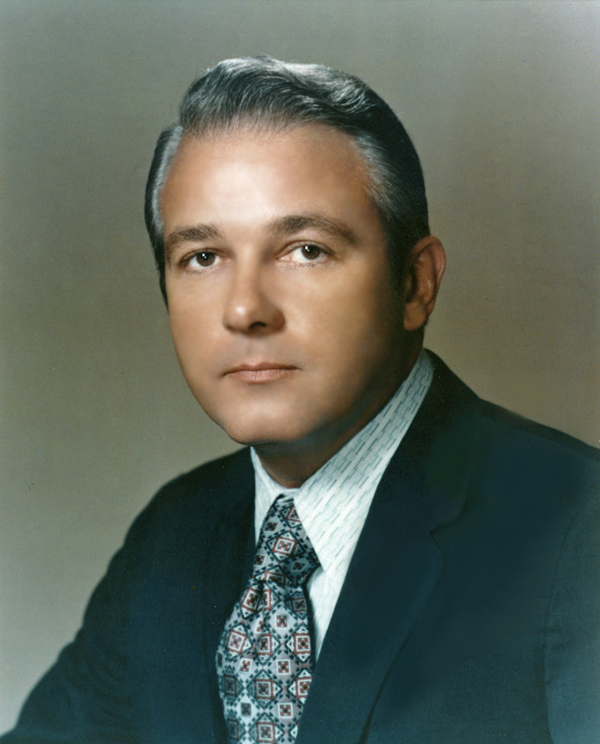
Despite a lack of support from the Democratic “Old Guard,” which included Gov. John McKeithen and others party stalwarts, Edwards could smell the faint aroma of victory. He got its first, sweet taste late in the night of Feb. 1, 1972. Thirty-eight years had passed since he made his pronouncement as a six-year-old he would one day be Governor of Louisiana. The day had come.
Believers and skeptics alike took new stock of this self-described “coonass” from Crowley. Uncertainty lay ahead. Projects started enthusiastically by Gov. McKeithen and others languished unfinished.
The poor were looking for hope, the rich were hoping for opportunity. The young looked to replace the Old Guard with something better. The old looked for reassurance they would not be forgotten. Racial divides continued. Everywhere he looked, the new governor had to find creative ways to build new bridges and be careful not to burn the old ones.
Success, Surplus and Sunshine
the golden one
EWE 1973 – 1980
“One of the things I accomplished while in office of which I am most proud is the creation of a new State Constitution. It was desperately needed, and I am happy to say we got it done.” – Gov. Edwin W. Edwards
By the early 1970s, Louisiana’s fifty-year-old Constitution had turned into an unwieldy antique that few of its young heirs wanted. Gov. Edwards spearheaded efforts to have the bulky document re-drawn with less cronyism and less protection for special interests. A Constitutional Convention was called in 1973 and from the resulting work, voters approved a new state constitution in 1974.
The streamlined constitution eliminated hundreds of boards and commissions, and 80 state agencies. They were replaced with a “cabinet style” executive branch similar in structure to the federal government.
Just prior to Edwards’ win, Gov. John J. McKeithen had sold New Orleans and Louisiana on his vision of an Astrodome-type stadium in the Crescent City, hoping to lure the NFL and all its related benefits to the state. They bought it. It was projected the new stadium, to be aptly named the “Superdome,” would be completed before the 1972 NFL Football season at a price tag of $46 million. Neither completion nor price materialized as promised. By the time they broke ground for the construction of the Superdome in August 1971, the election of a new governor was only six months away. And McKeithen would leave office with a $30 million budget deficit.
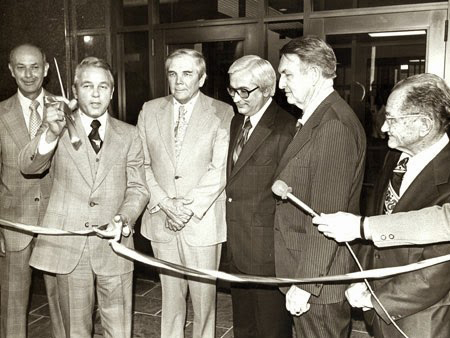
It fell to newly elected Gov. Edwards to get the job done of building the Superdome, and he did it, despite the involved politics, setbacks and soaring costs. In August 1975, four years after the ground-breaking, Gov. Edwards stood in front of the gleaming, monstrous Superdome and cut a shiny ribbon to mark its grand opening. McKeithen may have sold it, but Edwards delivered, and Louisiana could not have been prouder.
Louisianans have always known how to “laissez les bons temps rouler,” and now they had a fine, futuristic, 13-acre, 27-story, luxurious stadium in which to do it.
In a financial stroke of genius, Gov. Edwards also found a way for Louisiana to more fully benefit from its oil and gas production. Under his leadership, legislators raised natural gas taxes a little more than double, and the severance tax on oil was upped from 25 cents a barrel to 12.5 per cent of value. It was a brilliant move any time, but especially during the world-wide energy crisis of the early-mid ‘70s. Suddenly McKeithen’s parting gift of a $30 million budget deficit was not nearly so daunting.
As a result of the new severance tax, surplus funds soon appeared with money enough to provide pay raises for schoolteachers and employees, and state workers, as well as highway improvements.
Successes were coming for Edwin Edwards professionally, but the sacrifice his hard work exacted took an undeniable toll at home. Edwin’s marriage to Elaine suffered, as did his relationships with his children.
Edwards was consumed with the work of his office, the daily challenge of legitimate issues and the day-to-day grind from detractors, and last but not least, a fickle press who constantly patted him on the back – sometimes out of sincere admiration for his efforts and other times, in search of a tender spot.
By and large the ‘70s was a time of flying high. Louisiana and its popular governor were living large. Storms came and went, but the sunshine of that decade seemed to far outweigh any distant thunderclaps of warning. Life was good. Problem is, life is a lot like that old joke about Louisiana weather: give it a minute, it’ll change.
When things are good, they’re really good, and when they’re bad – well, that’s when you have to hang on and wait for things to turn around again. In the former governor’s case, they always did.
Public Profit, Private Loss
joy and sorrow
EWE 1981 – 1989
“The worst thing that ever happened to me was the murder of my youngest brother in 1983.” – Gov. Edwin W. Edwards
When Edwin Edwards left the Office of Governor the first time, he left behind a half-billion-dollar surplus. New Governor Dave Treen wasted no time in finding ways to productively use it. Dollar by dollar it disappeared into various projects, and Edwards fairly sprinted to establish himself as a candidate, once again, for Louisiana’s highest office.
He began raising campaign funds almost immediately, and was an outspoken critic of Treen, often walking the halls of the Capitol in Baton Rouge to champion legislation about which he felt strongly.
In early ‘83, he began officially campaigning, and though their marriage had cooled, Elaine remained loyal and supportive, showing up at his campaign headquarters opening looking glamorous in a red mini-skirt.
Treen governed as Edwards paced impatiently on the sidelines like an exasperated coach, wishing he were the one making each play, rather than the fumbling ball carrier on the field.
Some six months later in August 1983, Edwin was dealt a devastating blow: his baby brother Nolan, a Crowley attorney, was gunned down in his law office by a long-time, disgruntled client. After firing two quick shots into the younger Edwards, the shooter turned his weapon on himself and ended his own life. Nolan lived through the initial attack but died enroute to the hospital. He was 52.
Campaign activities were briefly suspended as Edwin and the family mourned their loss, but it wasn’t long until Edwards had to get back to it and get back to it he did.
On Election Day, Louisiana voters showed their unmistakable support for Edwards’ leadership when they sent him back to the Governor’s Mansion in Baton Rouge with a whopping one million voices, 62.3 per cent of the vote.
Short of funds to cover campaign debt, Edwards’ brother Marion arranged a novel campaign victory trip to France. Its highlight was a formal dinner arranged at the Palace of Versailles. Over 600 made the trip in mid-January 1984, including dozens of elected officials and two dozen journalists.
While the victory tour was flying high – literally, the New Orleans Saints were not so slowly biting the dust. Lack of gridiron success had left the team owner disillusioned and ready to unload the mounting expense and disappointing return of a professional NFL team. There was talk of locating the Saints elsewhere and leaving the Superdome behind.
Those who cheered the Saints to championship victories and their Super Bowl XLIV win can thank former Gov. Edwards for having the foresight to do everything in his power to keep the team at home. In 1985, he persuaded auto magnate Tom Benson to purchase the team. Over three decades later, the Benson family is still at the helm.
In addition, Edwards put together a mutually advantageous deal for the state and the Saints to realize benefits from the team’s continued use of the Superdome, and to provide long-term stability for the Saints and their fans. As a part of the deal, Benson signed on to not move the Saints elsewhere for 30 years. As home to a winning NFL team, Louisiana still enjoys a tremendous economic boon.
A winning streak for Edwin Edwards did not continue. Despite a third term marked with good successes, voters decided they were ready to pin their hopes elsewhere and Buddy Roemer was elected Governor in ‘87.
Down, but not out, Edwards stepped off the political merry-go-round and began setting his personal life in order. He and Elaine attempted to put their marriage back together, but it was not to be. They found they had simply drifted too far apart to recapture what was lost. The Edwardses filed for divorce in July 1989.
Scandal, Love and a Resurrection
return of the friendly dragon
EWE 1990 – 1996
“It is a great honor to be the only person elected four times as governor, and I am very grateful to the people for giving me that opportunity.” – Gov. Edwin W. Edwards
Scandals? Plenty. Almost every elected official has his or her share. All unwanted, of course. Some are brought about by legitimate missteps and thoughtlessness. Others are manufactured by the cavernous appetite of the 24-hour news cycle, or a crafty combination of the two.
Edwards’ larger-than-life persona certainly worked against him when it came to the media, opponents and detractors. The magnetic charisma he enjoyed among Louisiana’s common folk provided ample incentive for the media and others to work twice as hard to voice their disapproval. They would have had a difficult time making their points stick otherwise.
In 1980, the 24-hour news cycle became the new, golden standard. The never-ending need for news content led journalists to chase every rabbit they could find, sometimes deep into the blind underbrush only to discover a dead end.
The scandals of Edwards’ time in office were millstones around the governor’s neck. Earned and imagined, they relentlessly slowed, pulled and shifted the natural momentum of his life until it was forever changed. Edwards felt their inevitable presence in the election of ‘87.
Despite his political and personal setbacks, Edwin Washington Edwards pushed forward. He could have never done otherwise; it seemed written in his DNA. After the disappointments of the late 1980s, Edwards collected himself and once again fixed his gaze on the dark clouds’ silver lining.
One particularly sweet ray of sunshine that came into Edwards’ life was a young woman named Candance “Candy” Picou, whom he met in 1990. Nothing soothes a tired heart like love found, and they had it. After having bowed out of a runoff with Buddy Roemer in the ‘87 election, Edwards predicted it would not be long until Louisianans would beg for his return as Governor.
When Edwards conceded, Gov. Roemer used the analogy of “slaying the dragon.” As usual, the former Governor took the intended insult and used it to his advantage. “The dragon is friendly,” Edwards said at the time, “And far from dead.”
It must have done Edwards’ heart good when a band of men in the Sabine Parish seat of Many proposed a “Return of the Friendly Dragon” parade in June 1990 to encourage him to run again. As he waited to walk the parade route, Edwards reminded a group of reporters gathered there he had said people would eventually march in the streets, asking for his return. “There they are,” Edwards said, as he pointed to over a thousand people who lined the sunny parade route to welcome him.
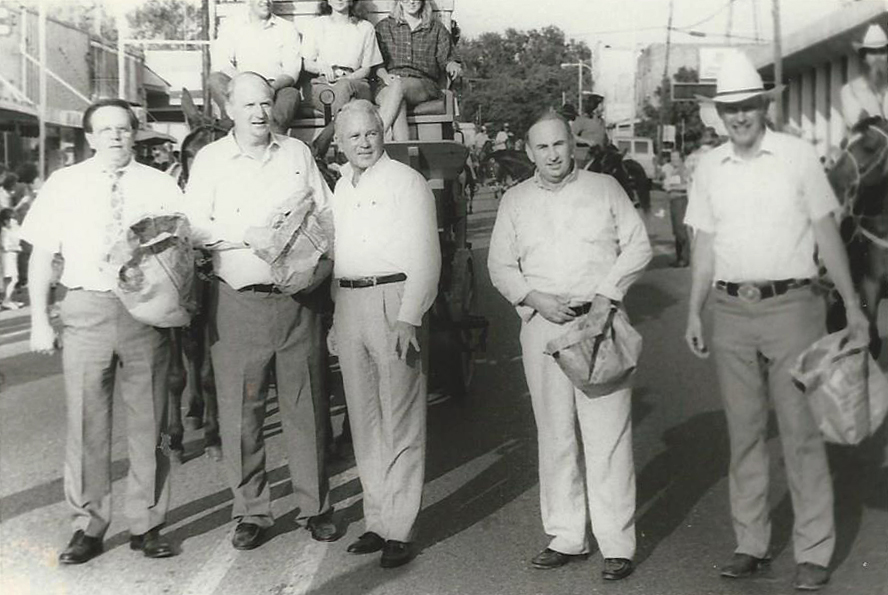
As dreams about another campaign for Governor turned into action, it only helped that Edwards’ prime opponent had once been a card-carrying member of the Ku Klux Klan. One could not have prayed for a more tarnished competitor than David Duke. It did not hurt that the Governor had previously appointed Blacks to important state positions, had supported Black politicians and had a life-long, authentic record of simply treating folks like folks – no White, no Black, no nothing – just folks.
Countless major newspapers and media organizations raced to endorse Edwards for Governor. Edwin Washington Edwards was back. His past accomplishments were real and tangible. Despite missteps, scandals or transgressions, Louisiana wanted their governor back in office.
He was the man who completed I-10, I-20 and much of I-49 to finally physically connect people from across the state with one another. He was the man they felt could lead them into the future. He could have, and he would have, except for those pesky millstones that kept routinely appearing.
Edwin W. Edwards was elected to an historic fourth term in 1991. Roemer handed over the keys and in January ‘92 Edwards settled into his old familiar places. He became engaged to Candy that year as well, and the couple married on May 26, 1994. Things should have been bright as the sun, but scandalous headlines proved to be a never-ending game of whack-a-mole. If it’s not one thing, it’s three others.
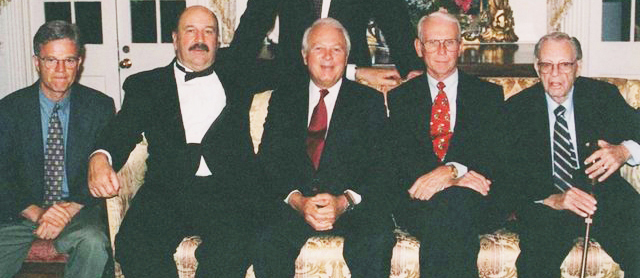
Serving the People, Serving Time
a lot of noise, a lot of silence
EWE 1996 – 2011
“I thought people would spit on me, throw rocks. But they still loved me.” – Gov. Edwin W. Edwards
The great ones fall hardest. But, as Gov. Edwin Edwards took office again in 1992 his outlook, as always, was bright. He had no indication of the personal drop-off that lay ahead. In fact, he looked forward to the challenge of bringing Louisiana back. She had suffered a major downturn in the oil industry and the push and pull of big corporations hoping for a piece of the action had her pretty well whipped.
Edwards thought back to his early terms – a good foundation had been laid. What other governor had created a $500 million trust fund for education wrapped up like Fort Knox? None. The Oil Severance Tax, funding for infrastructure, the building of the Superdome – so many deals, so much productive creativity. Louisiana needed another miracle. Gov. Edwards thought it lay in one of his favorite, private past-times – gambling and playing the best online slots real money.
He had pushed for expansion of legalized gambling in ‘86 as a solution to the state’s financial difficulties and had hoped to create a state lottery and build casinos in New Orleans and its surrounds. It didn’t fly. As the years rolled on and the need for money pressed, many people who were formerly opposed now warmed to the idea of a state lottery rather than an increase in personal and property taxes. A state lottery was approved under Gov. Roemer and though he had campaigned against the lottery and casinos, the prospect of new jobs and increased revenue persuaded Roemer to change his position. Not long after, 15 riverboat casinos were approved to be located across the state and video poker was legalized as well.
During Gov. Edwards’ fourth term in office, three Native American tribes, the Chitimachas, Coushattas, and Tunica-Biloxis, began their efforts to build landbased casinos. What Gov. Edwards had proposed as a solution to the state’s financial problems was finally in place. It was a money maker, alright. Some felt it made money for the wrong people. Namely, Gov. Edwards and his family. Oh, boy.
In 1998, Edwards was charged with 26 counts, including racketeering, money laundering, extortion and fraud related to the issue of casino licenses and acquiring of contracts. A lengthy trial ensued, and the Federal Government’s legal team put its full force behind the prosecution of Louisiana’s only four-time governor. They succeeded in making 17 counts stick, but only after the dismissal from deliberations of Juror #68, the lone holdout who had many doubts and who simply did not feel the prosecution had made its case. The Judge insisted a jury of less than 12 could return a valid verdict. And they issued one. The Judge wasn’t finished. He sentenced Edwards to twice the length of sentence suggested by Federal guidelines and fined him a quarter-million dollars over the usual.
One would think Gov. Edwards’ life was over, but not quite. “I will be a model prisoner, as I have been a model citizen,” Edwards said. After a long goodbye to family and his wife, he served time from 2002-2004 at the Federal Medical Center in Fort Worth, TX. At the prospect of not having his freedom for several more years, Gov. Edwards filed for divorce from Candy in 2004.
A year later, he got to come home to Louisiana, moving to the Federal Correctional Institution in Oakdale. Once there, he became Librarian for the facility. Over the next five years, he helped numerous inmates earn their GEDs and offered legal advice occasionally. Gov. Edwards was more accessible after returning to Louisiana, and he kept a full roster of allowed visitors.
He had surely been to Hell and back, but his calm and charisma remained unchanged. Visitors were warmly greeted with his unflappable wit and seated with his characteristic hospitality. “May I offer you something to drink?” he would courteously ask as he carried coins toward the soft drink machine in the visitation room. His demeanor was exactly the same as if he were receiving guests at the Governor’s Office. I suppose when you’re born to be a leader, it comes naturally.
Life and Love Today
triumphant joy
EWE 2011 – 2017
“A highlight of my life was having Trina show up every visitor day when I was in prison.” – Gov. Edwin W. Edwards
“Repeated polls continue to show me as the most popular former governor and I am very proud of that. Guess it will be like that until JBE retires, and he will replace me, but it is not bad being second to him and ahead of the rest.” – Gov. Edwin W. Edwards
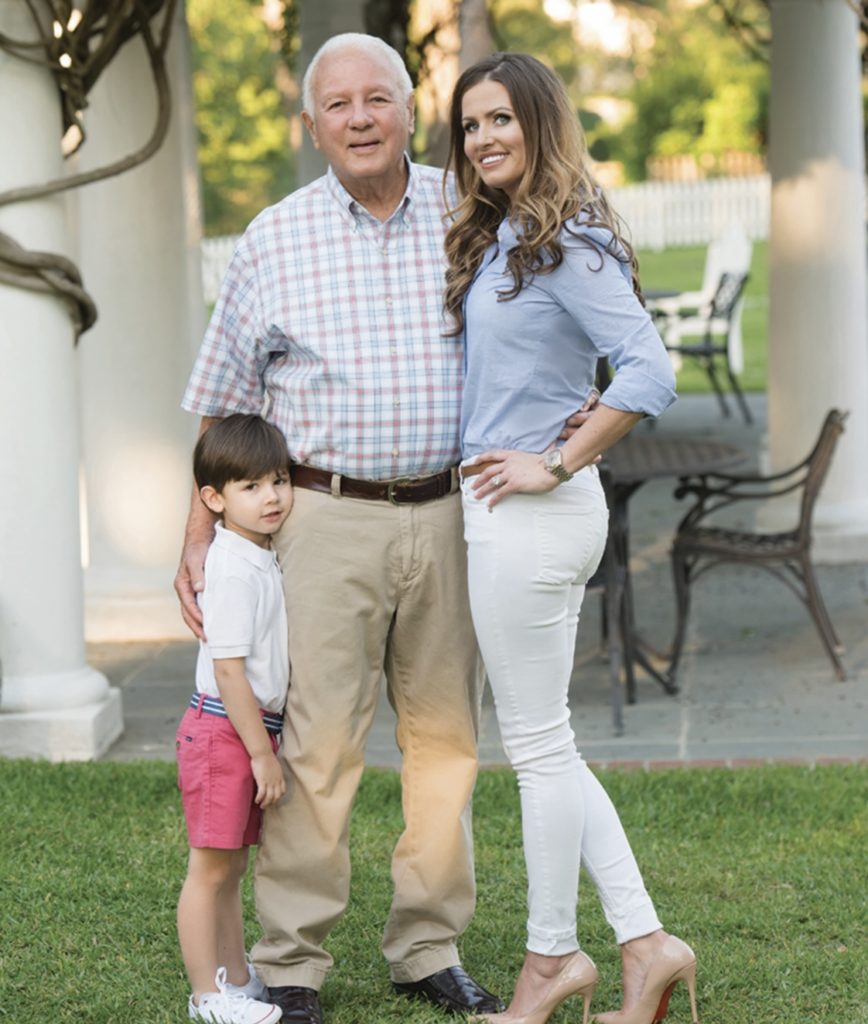
When the Judge brought down his gavel the last time after sentencing Gov. Edwin Edwards, he was satisfied the defendant would die in prison. It was not an unreasonable expectation. Many much younger have passed much sooner. But the Divine had other plans.
In 2009, an authorized biography by Leo Honeycutt, Edwin Edwards, Governor of Louisiana, was released. The heavy, 611-page tome ends on a sad note, but in reality, by the time of its release the book’s subject had already found his rhythm again and stepped into the sunlight once more.
While at Oakdale, a letter caught the governor’s attention out of the dozens he received daily. It was from a Trina Grimes Scott of Alexandria. He replied, and soon the two were exchanging letters regularly. After a friendship developed, Trina was added to his list of email contacts and they began corresponding online multiple times a day. He finally asked her to visit him. She did. And she returned every day after. The rest, as they say, is history.
When he was released to a halfway house in January 2011, Edwin and Trina planned a summer wedding after his official release. Edwin and Trina were married at the Hotel Monteleone in the French Quarter of New Orleans on July 29, 2011. Their son, Eli Wallace, was born Aug. 1, 2013.
Every person has a purpose in life, maybe a few. It’s easy to recognize in people with extraordinary talent. It shines through in everything they do. Others, perceived as more “ordinary” perhaps, have vital purposes as well – the maintenance person, the grocer, the schoolteacher, the small farmer, the mother, and the list is endless. Hardworking, decent people who, in their own corners of the world, give great dignity to the simplest acts.

To my mind, a minimum of three main purposes define Gov. Edwards’ life: The first was leadership. Gov. Edwards enjoyed many great successes in office. Much was due to his unique ability to connect with people, to serve the greatest and “the least of these.” People instinctively recognized the Governor’s heart for service and responded to it. His passion for governing was a great gift to many people of Louisiana.
Another purpose was to lift up the fallen, forgotten, the underdog, the common man. He did so over and over. Gov. Edwards stood up for civil rights, women, children, for those who didn’t have the resources to be heard. It’s called grace – love that stoops to meet a need when nothing is offered in return.
The third purpose has only begun to be revealed. It is a life fully lived as a beacon of hope – perseverance wrapped in a soft, luxurious coat of copious optimism. How else do you explain an 83-year-old man who, upon his release from serving nearly ten years in prison, looks healthier, happier, more youthful and content than when he went in?
People see Gov. Edwin Edwards today at age 90, [August 2017] and they’re inspired. He has traveled a truly amazing, historic journey through life, serving a sentence imposed by the court along the way, and now he quietly savors each day on God’s earth with his beautiful, loving wife, Trina, and precious little Eli. It may well be his finest hour yet. The man is hope personified.
Great victories follow great defeats. Just ask Gov. Edwin W. Edwards.
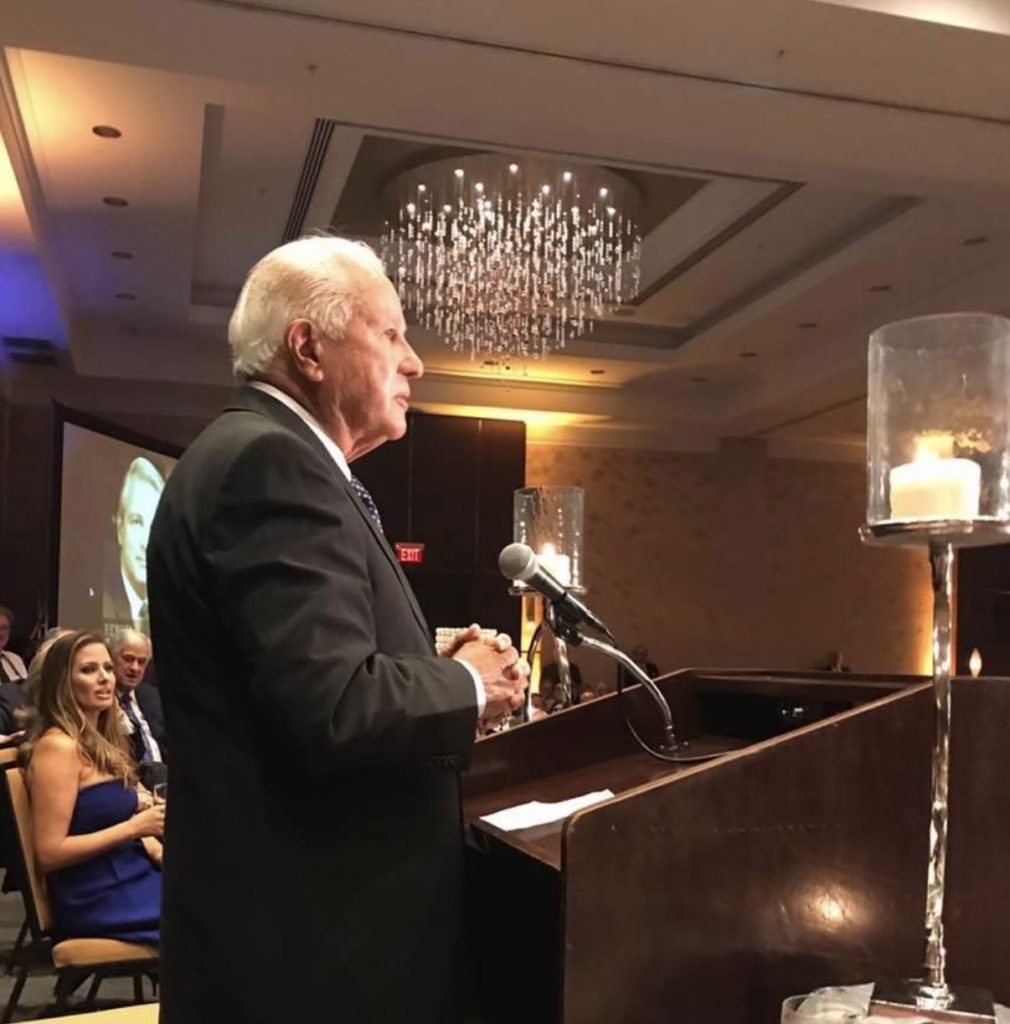
-30-




